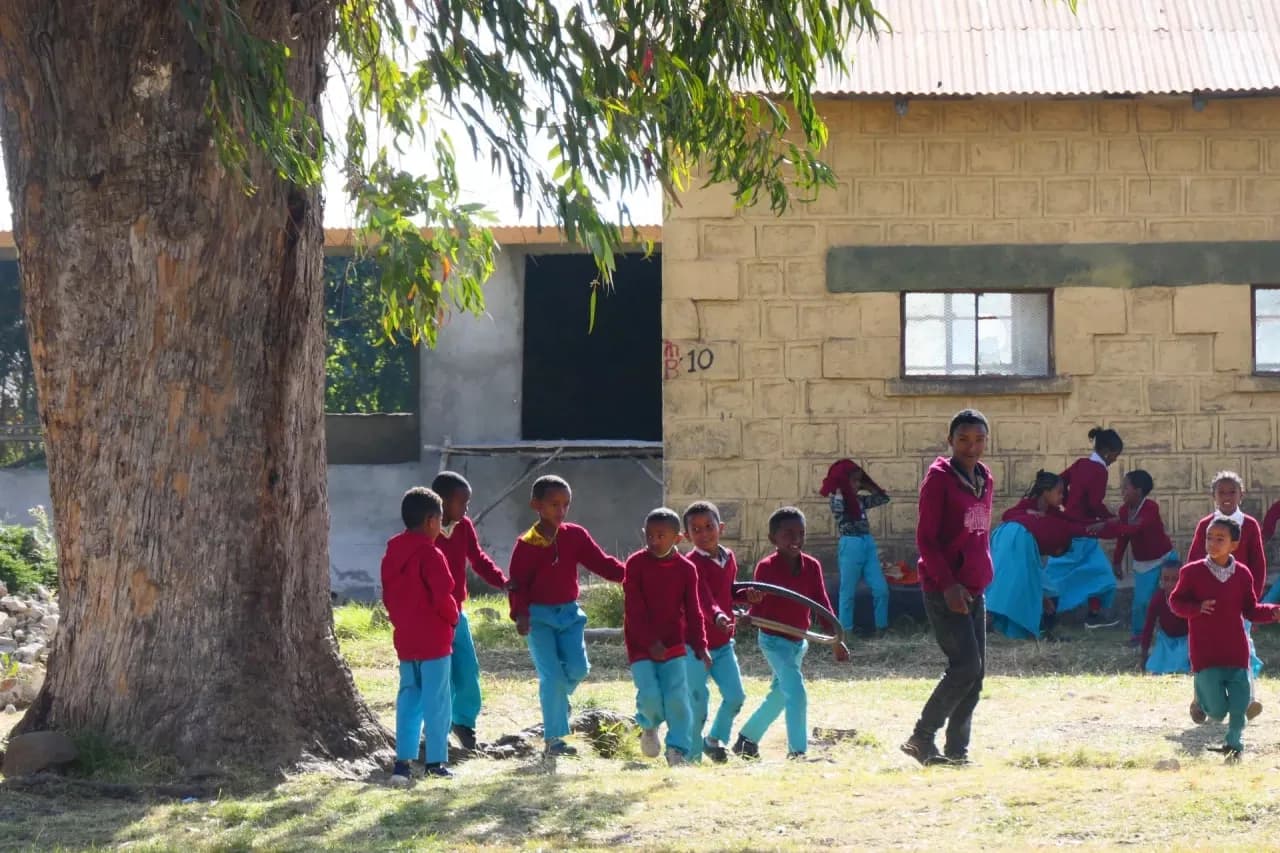Progress for 0 ad
Progress for 1 ad
Progress for 2 ad
Progress for 3 ad


Team Shega
Addis Ababa, Ethiopia

Access to quality education has been part of the Universal Declaration of Human Rights for nearly eight decades. While significant headway has been made over the years, millions of school-age children remain deprived of this fundamental right to this very day. Shortage of schools, basic infrastructure, and cultural heterogeneity have combined to diminish access, particularly in the developing world.
Reimagining education through 21st-century technology has allowed stakeholders to expand access in previously unthinkable ways. However, each stage of progress reveals novel sets of challenges and barriers in the world of Ed-Tech.
The August episode of Ed-Tech Mondays, a radio show produced by Shega Media & Technology in collaboration with the Mastercard Foundation, looked into one of these issues. Titled “Embracing Diversity in Learning Tools”, a lively ideological session ensued which peered into the nooks and crannies of cultural differences and their impact on the Ethiopian education landscape.
With nearly 80 ethnic nationalities and nearly the same number of languages, Ethiopia presents a unique challenge in the development of inclusive Ed-tech tools.
Helina Ayalew, co-creator of Edtech Ethiopia, underscored the importance of inclusive design in Ed-tech tools to foster swift adoption and impactful reach. She stressed the need to develop educational material tailored to Ethiopia’s multilingual heritage and geographical expansiveness.
“Creating content in local languages prevents the potential loss of nuance that occurs during direct translation,” Helina noted.
Betelhem Tadesse, Early Childhood Education program advisor, complimented the notion. She pointed out the potential benefits of contextualizing educational content to the cultural heritage of different communities across Ethiopia. Betelhem foreshadowed potential gains in inclusivity by leveraging the richness of existing traditional education practices with Ed-tech tools.
The panelists recalled their shared experiences of being confronted with a language shock during their early education in Ethiopia. For nearly two decades, Ethiopian students would see their entire curriculum being suddenly shifted to English when they enter high school.
“Several lessons are missed out as the students adapt to the early frustrations of a new language and context,” Bethlem noted.
Hilina suggested interlacing education during the formative years with elements of English to decrease the likelihood of shock much later.
Language has been a contentious issue in Ethiopia’s education policy for several years. Some advocate native languages being the medium of instruction throughout the entire educational career while others have called for a multilingual approach. The Education Ministry’s new policy tries to bridge the contrasting views by allowing children to learn in their native tongue before 1st grade, three languages until high school with the mandatory transition to English coming last.
Host Rediet Meshesha referred to the significant disparity between private and public school students in adapting to English at high school
“The language transition could be intermixed at early grades,” she suggested.
However, language is just one, albeit important, element of unique cultural identities cultivated and nurtured throughout a lifetime.
Bethelem pinned the impactful adoption of Ed-tech tools on the contextualized understanding of local customs and traditions. She explained how some cultures have prohibitions on practices that could be viewed as norms in other places.
Bethelhem referred to the introduction of movie theaters in Ethiopia and how they were viewed as the ‘devil’s house’ in the early days.
“Understanding local values helps in selecting the most impactful tools,” she emphasized.
Behelehem also stated the importance of understanding geographical proximity to urban areas in developing tools. Selections between radio, television or any other communication medium play a major role in developing effective tools, according to the advisor.
Helina further bolstered the sentiment by referencing the role of technology. She indicated that technology helps in attaining a certain goal and that it is not an end goal all by itself.
“Culture and context are crucial in developing technology,” Hilina remarked.
As Ed-tech tools look to primarily upgrade the existing education infrastructure, the role of teachers remains crucial to the task. Empowering teachers with the ability to better understand cultural nuances while upskilling could prove highly consequential. A recent nationwide examination of teachers across Ethiopia was quite alarming as just 22% managed to score a passing grade in English proficiency. While not conclusive on its own it provides some insights into the recent struggle of students to attain passing grades for university entrance.
Hilina called for the development of tools and curriculums that bridge the gap between teachers and students. She reflected on the cultural mismatch that occurs when curriculums are developed in urban settings to then be transplanted onto rural communities.
“Understanding the best way teachers communicate to their local students is essential,” she noted.
Repeated engagements, feedbacks, and constant interaction with teachers is important feedback in creating impactful tools, according to Hilina.
Betelhem echoed the reflections.
She foresees maximum impact from Ed-tech tools arising out of continued updates based on feedback from teachers and local communities. Bethelhem suggested focusing training in Ed-tech tools on the lived experience of teachers who have direct access to the local cultural context.
Providing access to quality education is an undertaking that requires the combined efforts of several stakeholders. While governments play a significant role in policy-making, Ed-tech startups, development partners, and NGOs contribute to creating tools with impactful results. One of these institutions is the Mastercard Foundation which through its Edtech Fellowship and other efforts has been providing significant support in bridging the education gap for underserved young people in Ethiopia
Fellowship is a 3-year catalytic acceleration program designed to bridge the education gap for underserved young people in
Bethelhem expects engagement with local community groupings like saving groups, Aka Edir and Ekub to provide useful insight in contextualizing efforts to local nuances. She recommended taking lessons from the health sector which has had relatively better success in Ethiopia.
“Private sector actors could play a central role in accelerating the effort,” Bethelhem noted.
She pointed out the promises of public-private partnerships for creating sustainable Ed-tech tools that best serve local communities.
Hilina acknowledged the global importance of governments in spearheading inclusive education access while signaling areas ripe for private sector participation. She cited the benefits of experimentation, direct engagement and flexibility available to private actors.
“Impactful intervention can come about from multistakeholder engagement,” Hilina said.
She also stressed the importance of conducting continuous research to gain insights on which tools bring about maximum benefits to students. Hilina elucidated on how language and cultural contexts influence early childhood education.
“You don’t want to burden them with two (new languages and ideas) difficult tasks,” Hilina said.
Tools, partnerships, training, and tailored technologies towards creating inclusive Ed-tools were shared by the panelists. Powerful insights on how to bridge the education gap by understanding culture and linguistics were ubiquitous through the last Ed-tech Monday episode aired on Fana Radio.
👏
😂
❤️
😲
😠

Team Shega
Your Email Address Will Not Be Published. Required Fields Are Marked *